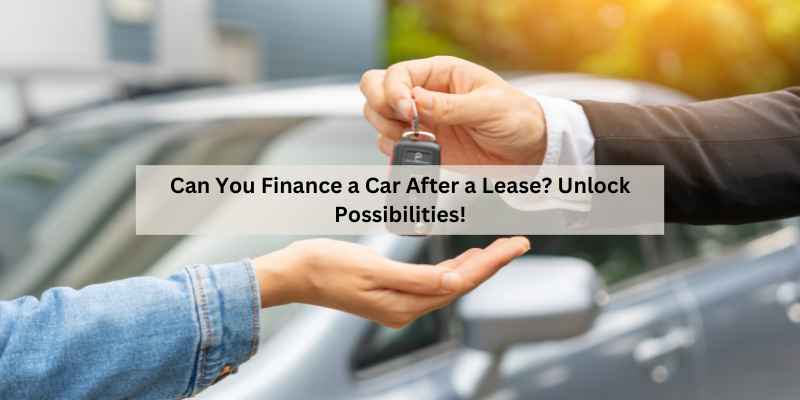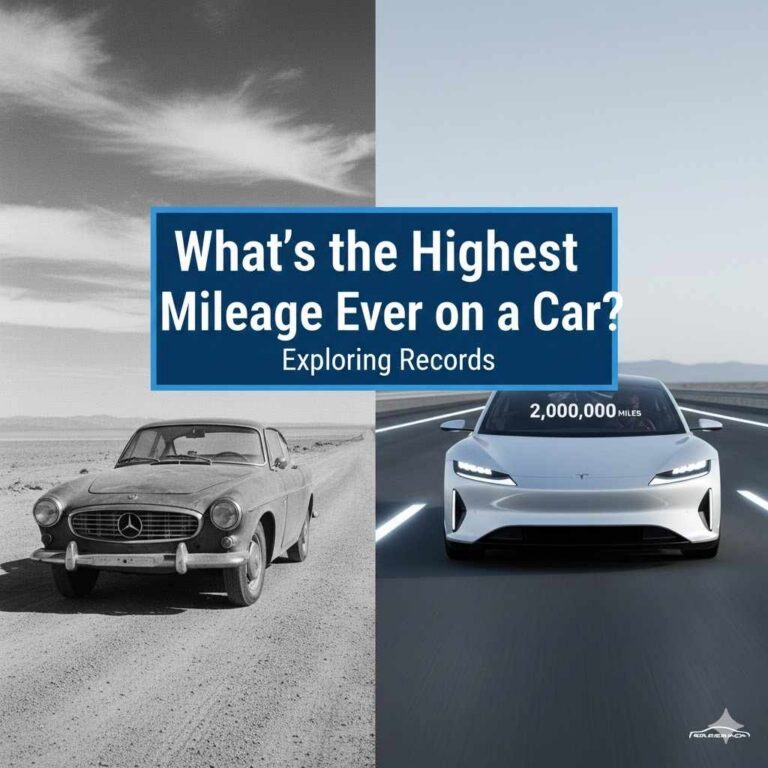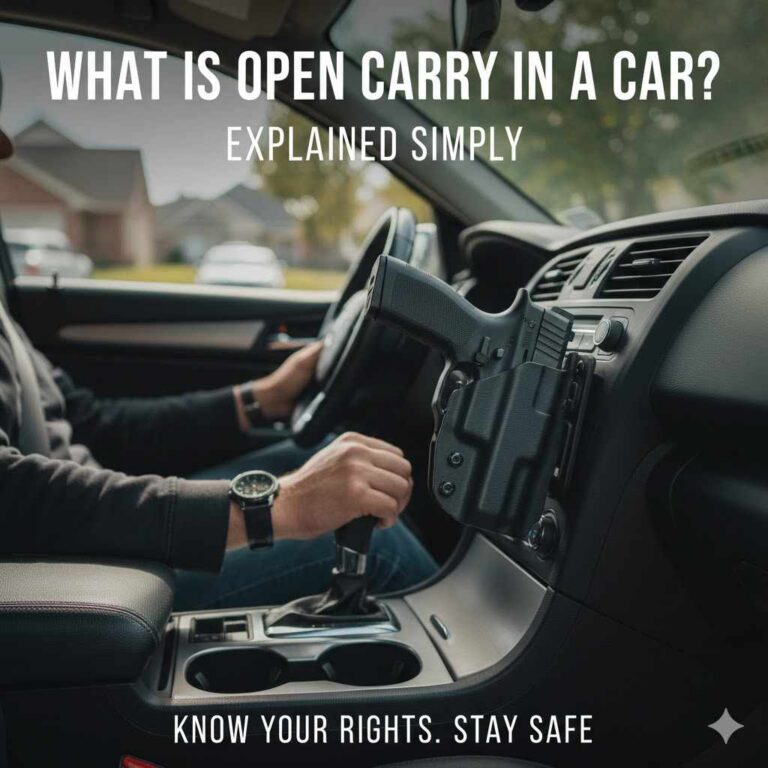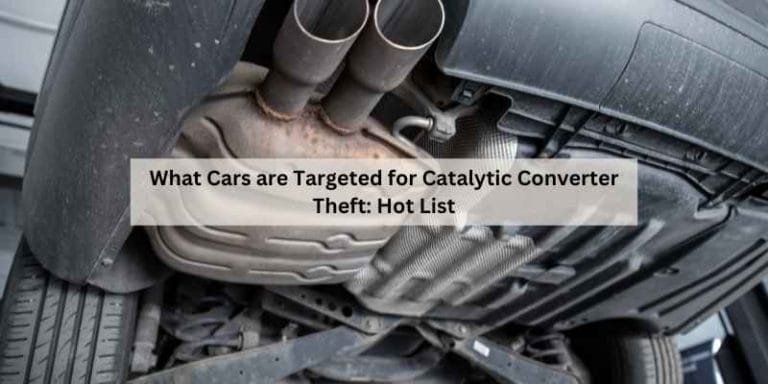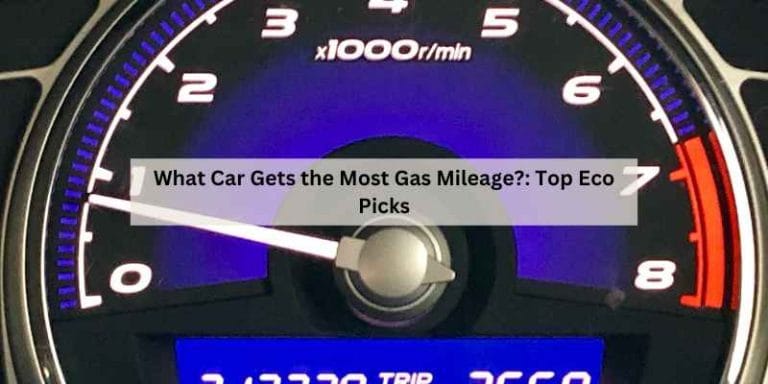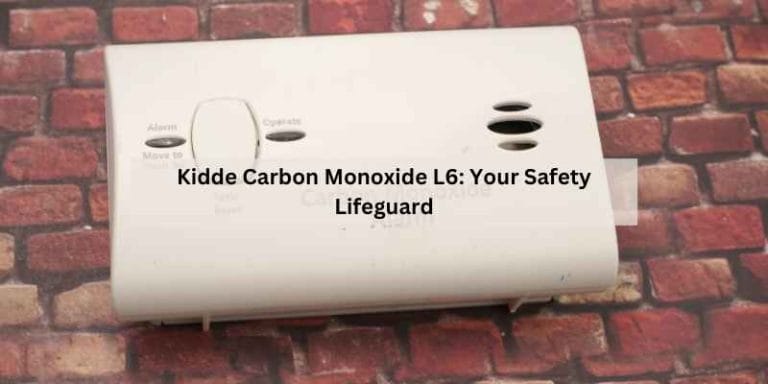Can You Finance a Car After a Lease? Unlock Possibilities!
Yes, you can finance a car after a lease. This option allows you to purchase the vehicle or finance a different one.
Many drivers face the end of their car lease and wonder about financing options. Leasing can be a great way to drive a new vehicle, but it often leaves questions about what to do next. Financing a car after a lease can provide flexibility and ownership advantages.
You can either buy the leased vehicle or choose a new one. Understanding your options helps you make an informed decision that fits your financial situation. Exploring financing terms, interest rates, and lender requirements will ensure you find the best deal. Take the time to evaluate your choices for a smoother transition from leasing to financing.
Leasing Vs. Buying: A Primer
Leasing and buying a car have key differences. Leasing means you pay for using the car, while buying means owning it. Lease agreements usually last for a few years. Payments are often lower for leases than for loans.
Pros of Leasing: Lower monthly payments and the option for a new car every few years. Cons of Leasing: Mileage limits and no ownership at the end.
Pros of Buying: You own the car and can drive it as much as you want. Cons of Buying: Higher monthly payments and potential repairs as the car ages.
End Of Lease Options
At the end of your lease, you have several options. The first option is to return the vehicle. This means you give the car back to the dealer. Make sure to check for any damages or extra mileage. You may need to pay fees for these issues.
The second option is to lease another car. This can be a great choice if you want a new vehicle. You might enjoy the latest features and technology. Dealers often have special offers for returning customers.
Lastly, consider the buyout option. This means you can purchase the car you leased. Check the buyout price in your lease agreement. If the price is right, it can be a smart choice to keep your car.
Understanding The Buyout
Understanding the buyout process is crucial after a car lease ends. Residual value is the amount the car is worth at lease end. This value is set at the beginning of the lease. It affects your buyout price.
Negotiating the buyout price can save money. Start by checking the current market value of the car. Compare this to the residual value. If the market value is lower, negotiate with the dealer.
Be prepared to show evidence of your findings. This may help lower the buyout price. Always remember to review your lease agreement for specific terms. Understanding these terms can lead to better deals.
Financing The Buyout
Financing a car after a lease can be a great option. Many people consider a buyout at the end of their lease. This option allows you to keep the car you love.
To qualify for a loan, check your credit score. A higher score often leads to better rates. Lenders look at your income and existing debts, too.
| Loan Terms | Interest Rates |
|---|---|
| Usually 36 to 72 months | 3% to 7% based on credit |
| Fixed monthly payments | Variable rates may apply |
Understanding these factors can help you secure a better loan. Always compare offers before making a decision. This ensures you get the best deal possible.
Benefits Of Financing A Lease Buyout
Financing a lease buyout offers many ownership advantages. You gain full control of the vehicle. This means you can modify it as you wish. Familiarity with the vehicle is a big plus. You already know its features and quirks. No need to adjust to a new car.
Owning the car means no more lease payments. You can keep it as long as you want. This often leads to long-term savings. No more mileage limits or wear-and-tear fees apply. Financing allows you to build equity in your vehicle over time.
Having a familiar car can also improve safety. You understand how it handles and performs. This can make driving more enjoyable and stress-free.
Challenges Of Lease Buyout Financing
Financing a car after a lease can be challenging. Credit plays a big role in this process. Good credit can help secure better rates. Poor credit can lead to higher interest costs.
Higher financing costs may occur due to several factors. Lenders often view lease buyouts as riskier. This can result in increased payments. Monthly payments might be higher than expected.
| Credit Score Range | Interest Rate Estimate |
|---|---|
| Excellent (750-850) | 3% – 5% |
| Good (700-749) | 5% – 7% |
| Fair (650-699) | 7% – 10% |
| Poor (below 650) | 10% and up |
Comparing Financing Options
Financing a car after a lease can be simple. Three main options exist: bank loans, credit union financing, and dealer-arranged financing.
Bank loans often offer competitive rates. They require good credit scores. Borrowers need to provide proof of income and residency.
Credit union financing is another great option. Credit unions usually have lower interest rates. Membership may be required to apply.
Dealer-arranged financing can be convenient. Dealerships often work with multiple lenders. This option might have higher rates compared to banks and credit unions.
Steps To Finance Your Lease Buyout
First, review your lease agreement. Understand the terms and conditions. Check for any fees. Know the buyout price.
Next, check your credit score. A higher score can help you get better rates. Obtain your score from a reliable source.
Then, shop for the best financing rates. Compare offers from banks and credit unions. Look for low-interest loans that suit your budget.
Finally, finalize the loan and transfer ownership. Gather necessary documents, such as ID and proof of income. Complete the paperwork with your lender.
Insurance Implications
Coverage changes can happen after leasing a car. Financing a car usually requires different insurance. You may need higher coverage limits. This helps protect your investment.
Insurance costs may vary based on several factors:
| Factor | Impact on Cost |
|---|---|
| Car Value | Higher value means higher premiums. |
| Coverage Type | Comprehensive and collision increase costs. |
| Driving History | A clean record usually lowers rates. |
| Location | Urban areas may have higher rates. |
Future Considerations
Maintaining the value of your leased vehicle is important. Regular maintenance helps keep the car in good shape. This can lead to a better buyout price at the end of the lease.
Consider the market value of your car when planning for the next vehicle. Research the resale value of similar models. This helps in understanding how much the car may be worth later.
Keeping the vehicle clean and in good condition is essential. Avoiding excess wear and tear can improve its overall appeal. A well-maintained car is easier to finance in the future.
Frequently Asked Questions
Can You Finance A Car After A Lease?
Yes, you can finance a car after a lease. Many dealerships offer financing options for leased vehicles. You can either buy the car at the end of the lease or finance a new one. It’s important to check your lease terms for any conditions or fees related to financing.
What Are The Benefits Of Financing After A Lease?
Financing after a lease can provide ownership benefits. You gain equity in the vehicle, which is not possible with leasing. Additionally, financing allows you to customize your car as you wish. It can also lead to lower monthly payments compared to leasing a new vehicle.
Is It Better To Lease Or Finance A Car?
Leasing offers lower monthly payments and the chance to drive a new car every few years. Financing, however, builds equity and allows for ownership. Your choice depends on your financial situation and driving habits. Consider your long-term goals before making a decision.
What Happens To My Lease When I Finance A Car?
If you decide to finance a car after leasing, you can buy the leased vehicle or finance a new one. Buying the leased car may involve paying the residual value. Ensure you understand any associated fees or penalties before proceeding with financing options.
Conclusion
Financing a car after a lease can be a smart move. It offers the chance to own a vehicle you already love. Evaluate your options carefully, considering interest rates and loan terms. Make informed decisions to ensure your financial health.
Owning a car can be both rewarding and manageable with the right plan.

